Skit, Core, rock'n'roll: how did DotNext 2017 Piter go
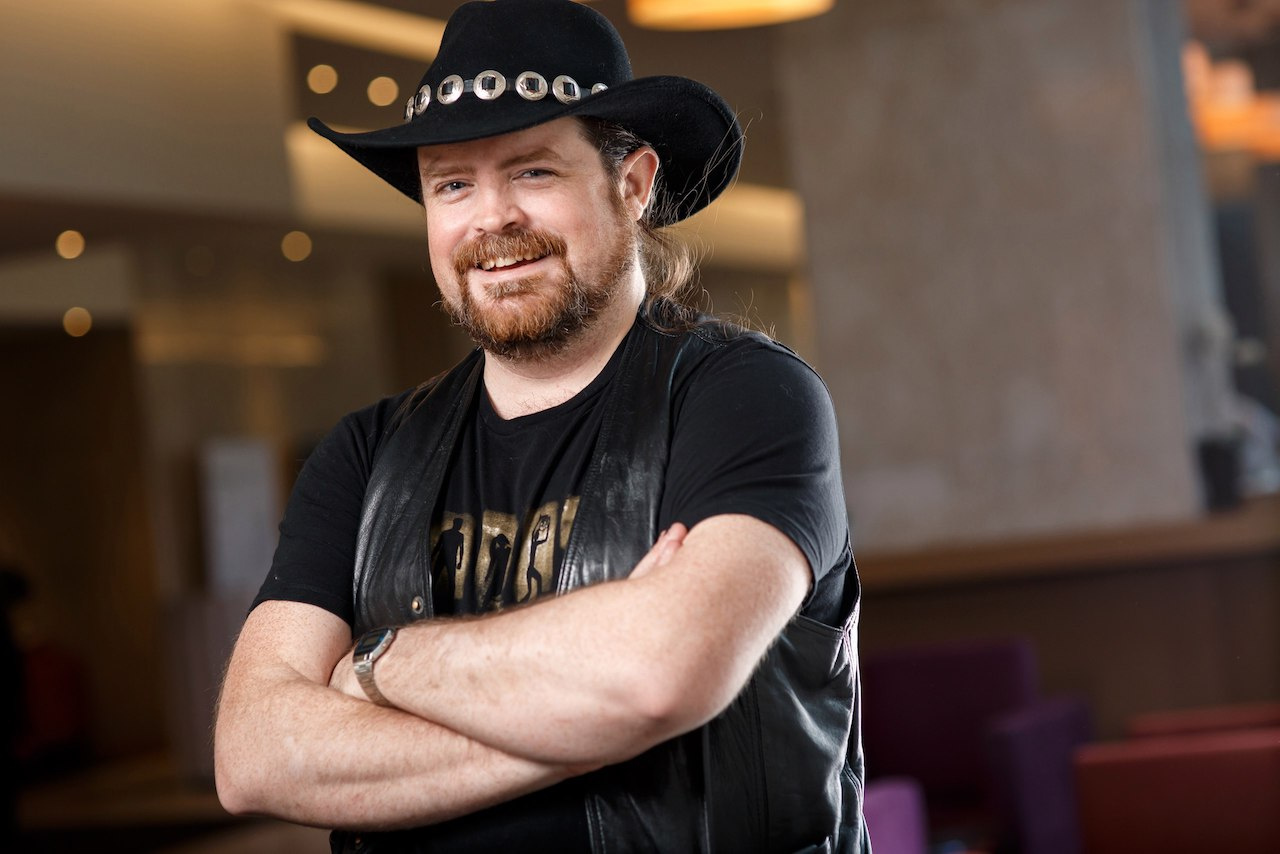
When an IT conference is held for many years in a row, it becomes a kind of “year rings”: it can be traced back to how technology grew and developed over time. For example, last June you could see on St. Petersburg DotNext how Dino Esposito scolded (ASP) .NET Core for not being ready for real tasks. And in December, at the Moscow DotNext, the intonation has already changed: they say, it is not necessary to drag Core into production yet, but it’s worthwhile to deal with it.
Now a new DotNext (the first one lasted two days instead of one) has passed in Petersburg What state of the .NET Core did it show? What other trends could be seen from his reports? How did John Skeet and other stars of the .NET world come up? Who is so charismatic in the photo above? All the details - under the cut.
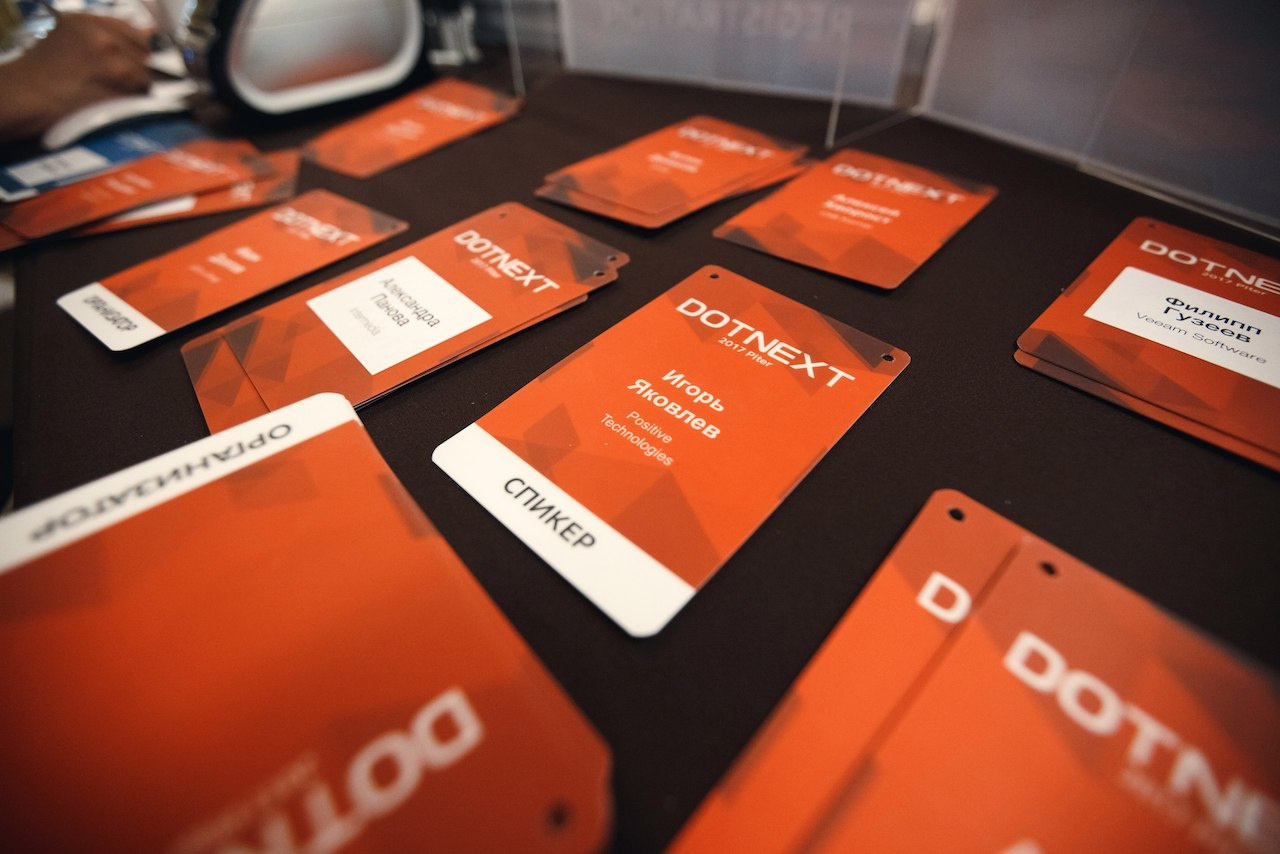
')
Trends
(ASP) .NET Core
Now the new incarnation of .NET has truly unfolded: there were seven reports in the program with the word “Core” in the title. From the stage of general acquaintance, the matter turned to a discussion of specific issues: safety, profiling, containerization. We are no longer talking about how we will live in the future, but about solving practical problems in the present.
There was, however, a report with the “introductory” name “What is .NET Standard?”. This is how the .NET Standard correlates with .NET Core, the community does not yet have a full understanding, they keep asking about it at Stack Overflow. And a separate funny moment is connected with this: just listening to this report on DotNext, John Skeet could feel more confident by answering the corresponding question on SO. We will now be proud that we, as conference organizers, indirectly helped the Stack Overflow legend with the answer!
Cross platform
With .NET Core, Microsoft is bound to go beyond the boundaries of the familiar world of its own platform. So it is no wonder that interest in other platforms is also growing now. Could we have thought a few years ago that the word “Linux” would be in the names of two reports at the .NET conference at once? And the author of one of them, Denis Ivanov , part of the time also writes his C # code for macOS. In general, the "collision of continental plates" in full swing.
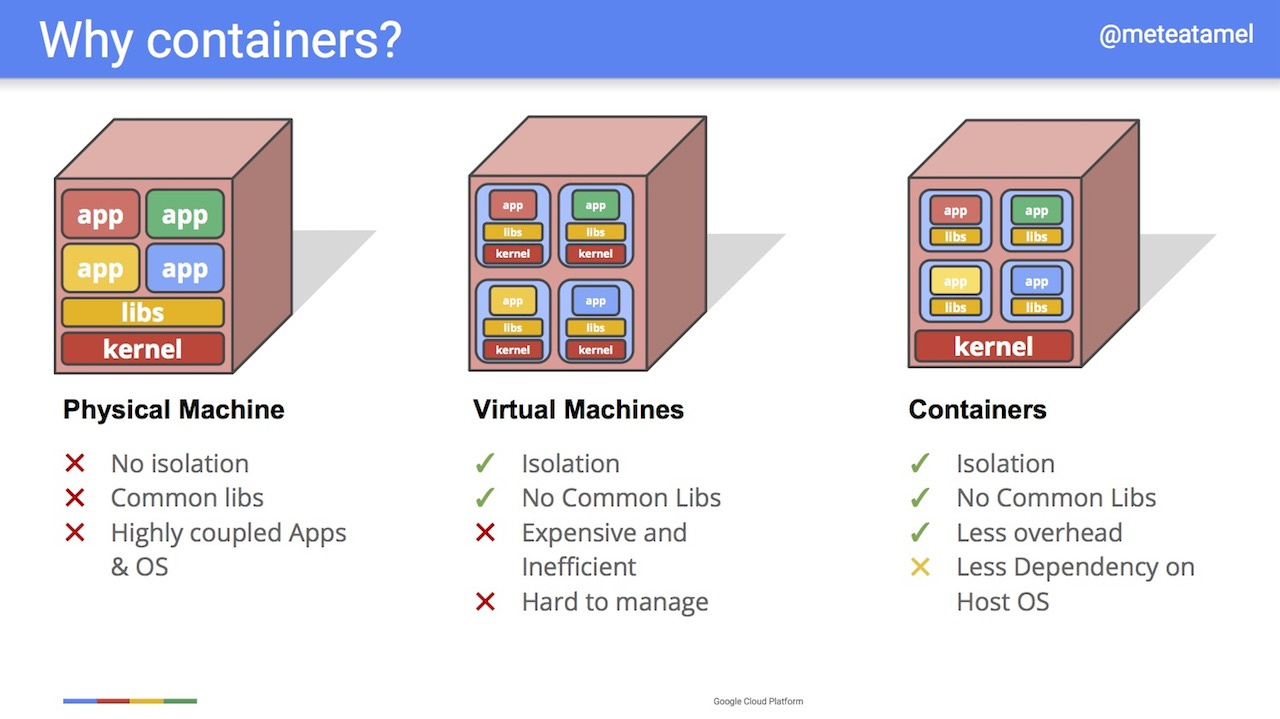
And with cross-platform and Linux, containerization came to the .NET world. In other ecosystems, this topic has become relevant earlier - and now it is interesting to the workers, so Alex Thyssen (Xpirit) and Mete Atamel (Google) also talked about it. It will be curious to see the following on the following DotNext: can containers, which have already proved themselves in Linux, be able to come to Windows?
Open source
Another sensation from the conference is the growing interest in open source in the .NET world. Adam Sitnik right in the title of the report delivered "My awesome journey with open source", but the feeling arose from communicating with those speakers whose speeches were devoted to something completely different.
In this you can see two components. Firstly, the fact that Microsoft, in the very .NET itself, has embarked on an open source code: of course, this is not news, but such a colossus does not take place instantly, so the effect continues to be felt after a long time. And secondly, it seems that the circles diverge more widely. The .NET community, previously accustomed to the “closed” flagship, also turned out to be less open source than, for example, the Java community. And now, following the flagship, it is also changing, with interest in dealing with projects created not by Microsoft. Library BenchmarkDotNet Andrey Akinshin began alone, and now develops with the help of people like the same Sitnik. Right after DotNext, she crossed the 2000-star mark on GitHub - we’ll assume that the conference contributed to this!
Rider
The JetBrains IDE has been stirring the minds of dotnetchik not the first month. However, now the product has become much closer to the release, has got quotations , and more and more developers (including DotNext speakers) use it for working projects. For example, among them is the aforementioned Denis Ivanov , who installed the Rider on his MacBook: Visual Studio for Mac is still far from the capabilities of the Win version, so now JetBrains is helping the dotnetchik to work under macOS. The previous DotNext already talked about the insides of Rider, and now Dmitry Ivanov (JetBrains) talked about IDE features that increase developer productivity.
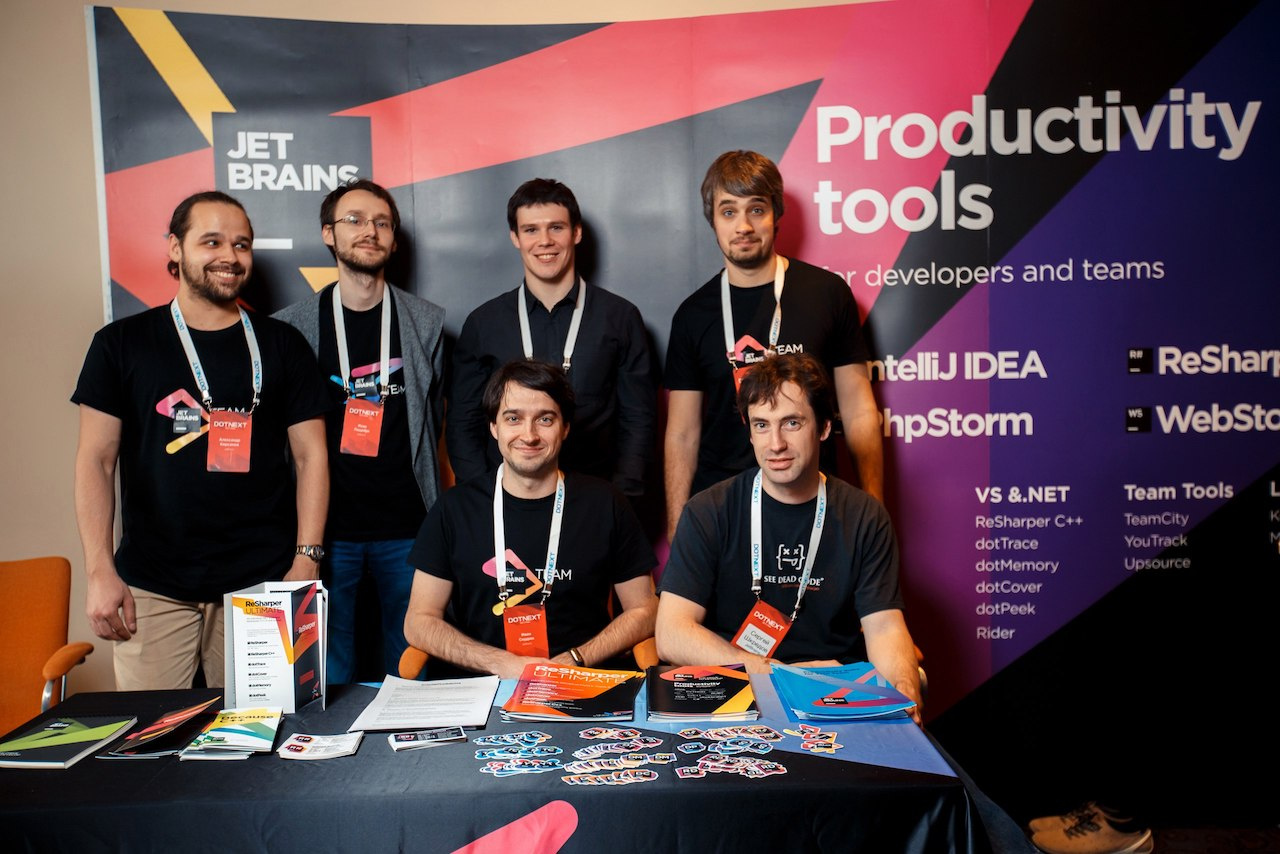
And at the company's booth in the lobby during the conference one could see a lot of employees, including Sergey Shkredov and Andrei Akinshin - so there one could get an answer even to the most tricky questions about the Rider.
New Frontiers: From AI to HoloLens
In addition to those being in the center of attention of developers, at conferences one can also see reports showing the leading edge of development. DotNext 2017 had two vivid examples. Mikhail Samarin (Futurice), at the opening of the conference, impressed many with the HoloLens demonstration, in his report talked about the development for this (so far) exotic platform, and at the stand Futurice gave those who wanted to touch it. And Dmitry Soshnikov (Microsoft) spoke about depth learning and chat bots.
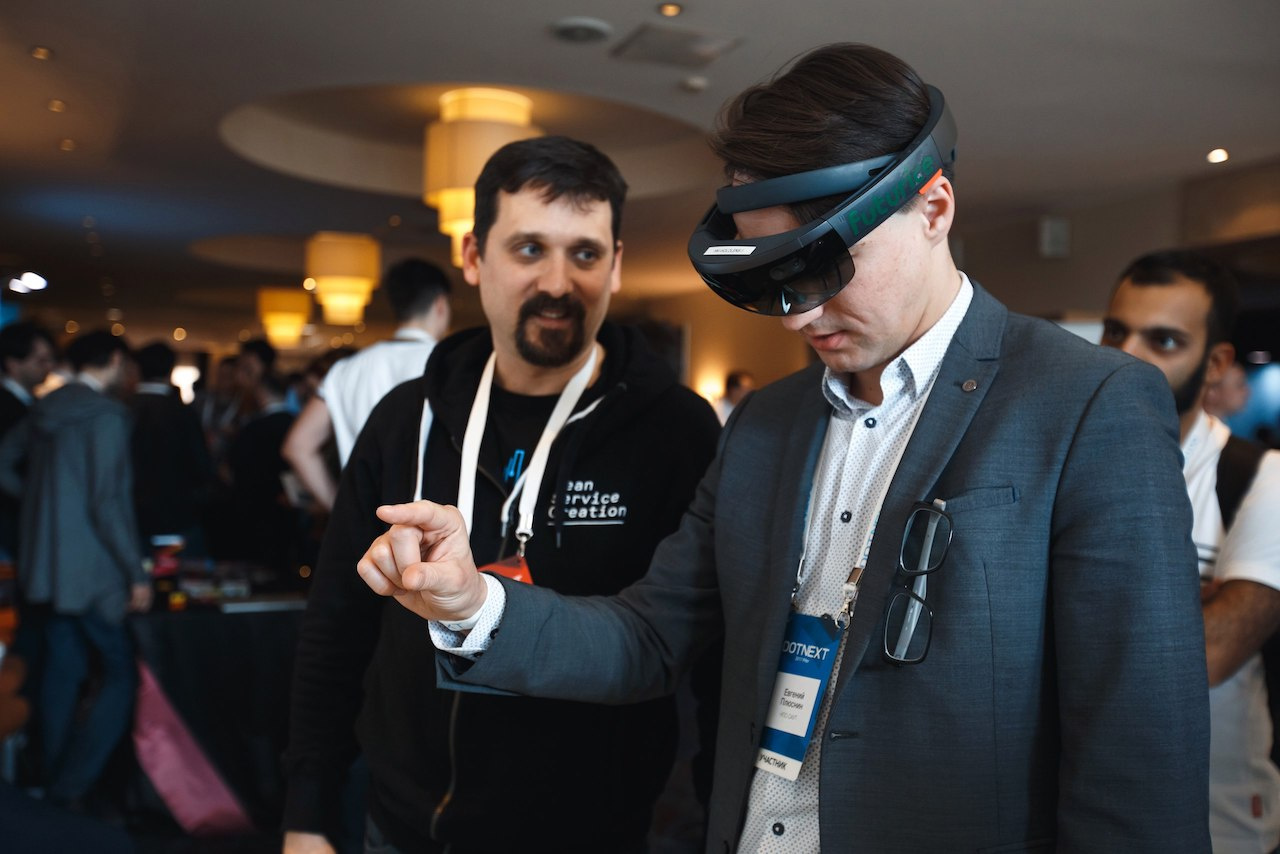
One can argue about how all this will take root, but both speakers did not say that everyone and everyone should urgently rush for it. Of course, if you now invest your time in this, there is a risk that the investment will not pay off. But, as noted Soshnikov, if you do not take on the AI now, then this also has its risk - to be left behind the departing train.
Keynouts
Since DotNext has become a two-day, it makes no sense to try to describe as many reports as possible - only a small part will turn out anyway. But let's go through the ones that all viewers saw: keyouts.
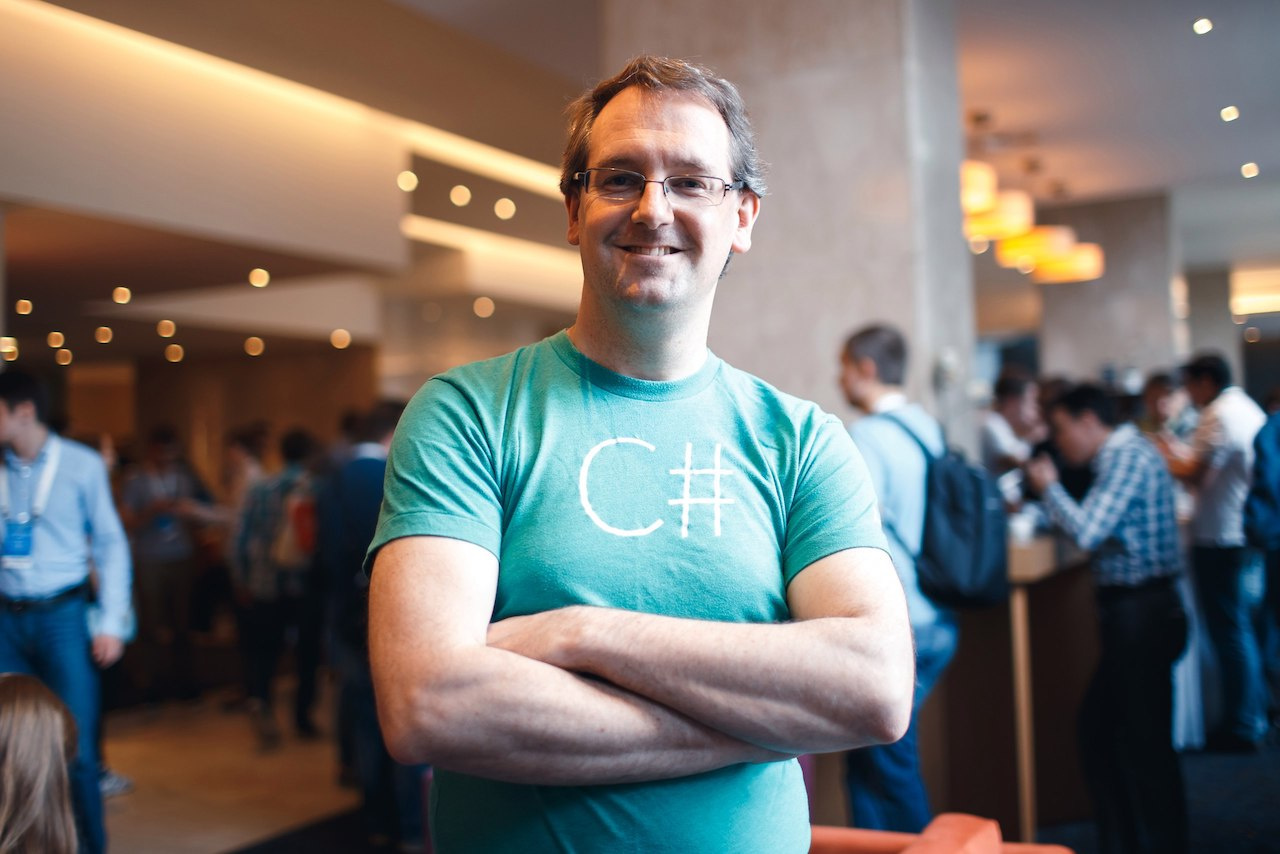
John skit
Skit has an impressive reputation in the .NET community — but that did not automatically mean that he would please the audience as a speaker. Maybe this is in response to the Stack Overflow he is a star, but he will not be able to keep the attention of the Russian-speaking audience with an English-speaking watch performance? At the beginning of his keynote, Skit said, “I was picking up half the night with Roslyn, so if I fall asleep on stage, throw something at me”, which added to my fears - but in the end he did not have to sleep either for him or for the hall. And the feedback after the conference showed that although some viewers were hampered by a British accent, in general, their marks were very high.
Skit talked about problems in such basic things as numbers, text and date / time, and managed to pronounce a bunch of memorable phrases:
- “Usually unconscious prejudice is talked about in the context of racism and sexism, but we all have another prejudice: decimalism. We unconsciously believe that decimal numbers are better than binary ones. ”
- “The diversity of cultures, no matter how much I love it, has spoiled our programming. Can we all use the same character set? ".
- “UTF-8 did not solve all the problems. If two users with the same name use different browsers, it may turn out that the same field will fit one name into one and the same field, while the other will not. I feel a breakdown in this. ”
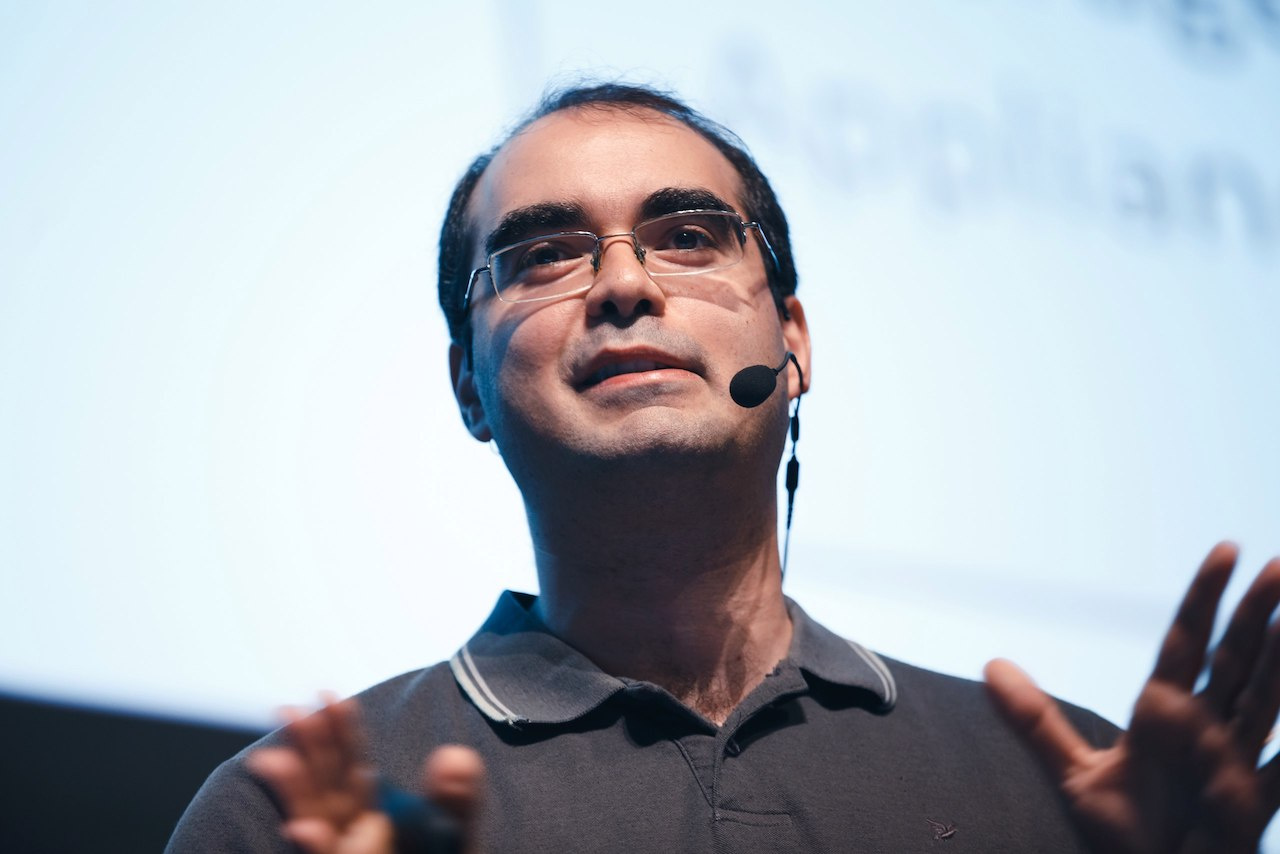
Sasha Goldstein
Those who have already been to DotNext before do not need to submit Sasha: his hardcore reports related to performance always receive high marks and praises for the ability to “just explain the difficult”. But this time the emphasis was shifted - he told how the investigation of the performance problem can occur in practice, and it was not only about the ability to work with technologies, but also about the ability to work with people. It’s easy not to think from the outside that if the consultant communicates with many different people about the performance of their projects, a snag may occur at the “get the necessary information from them”.
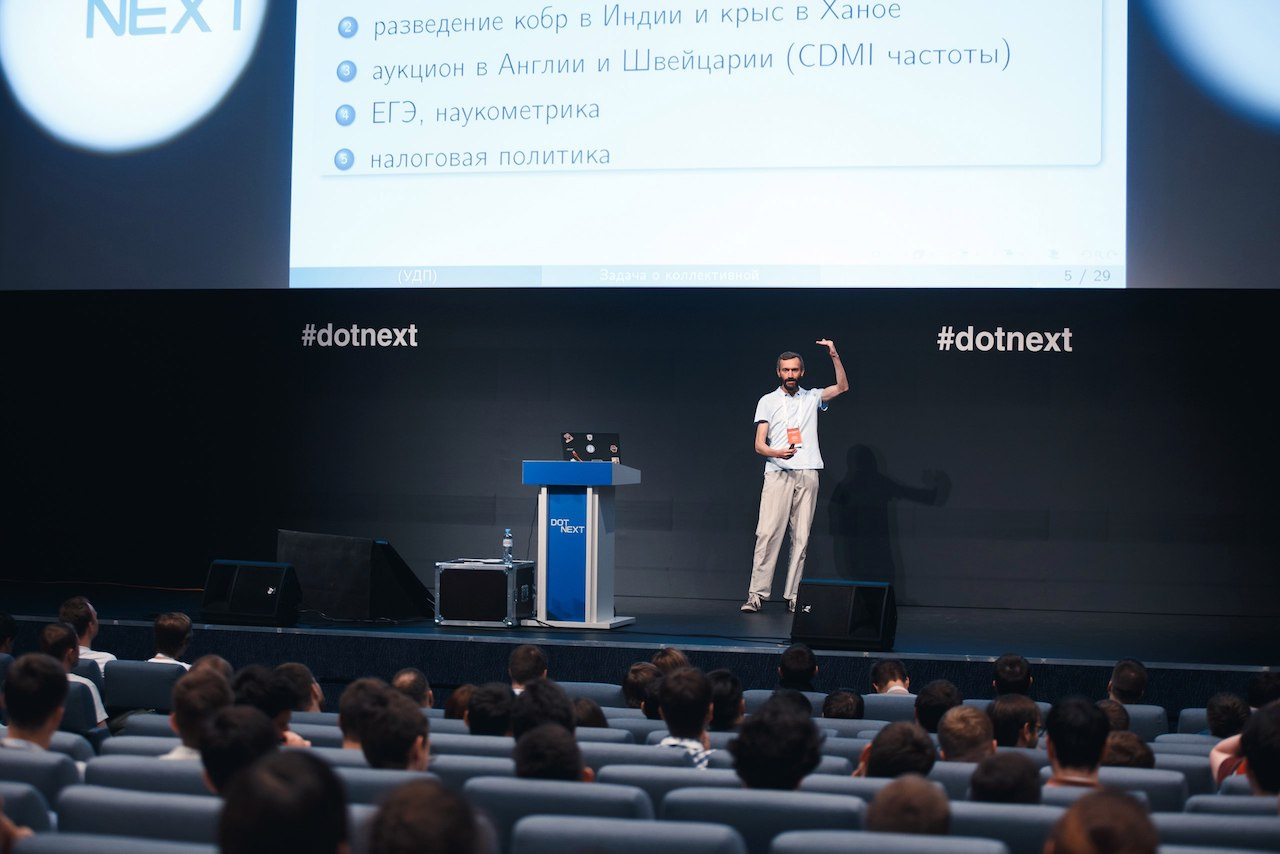
Alexey Savvateev
The conference ended with a speech popularized in mathematics, devoted to game theory. And, as it turned out, it is quite possible to keep the interest of hundreds of workers around the hour, without saying a word about .NET. The examples given, from the cobra effect to ways to minimize bribery, caused a lot of excitement in the hall, and immediately offered a lot of options to questions. This is how you think the verifier can reduce the level of bribes if they can exceed the amount of the fine, so that even after the fine, the bribe taker remains in the black?
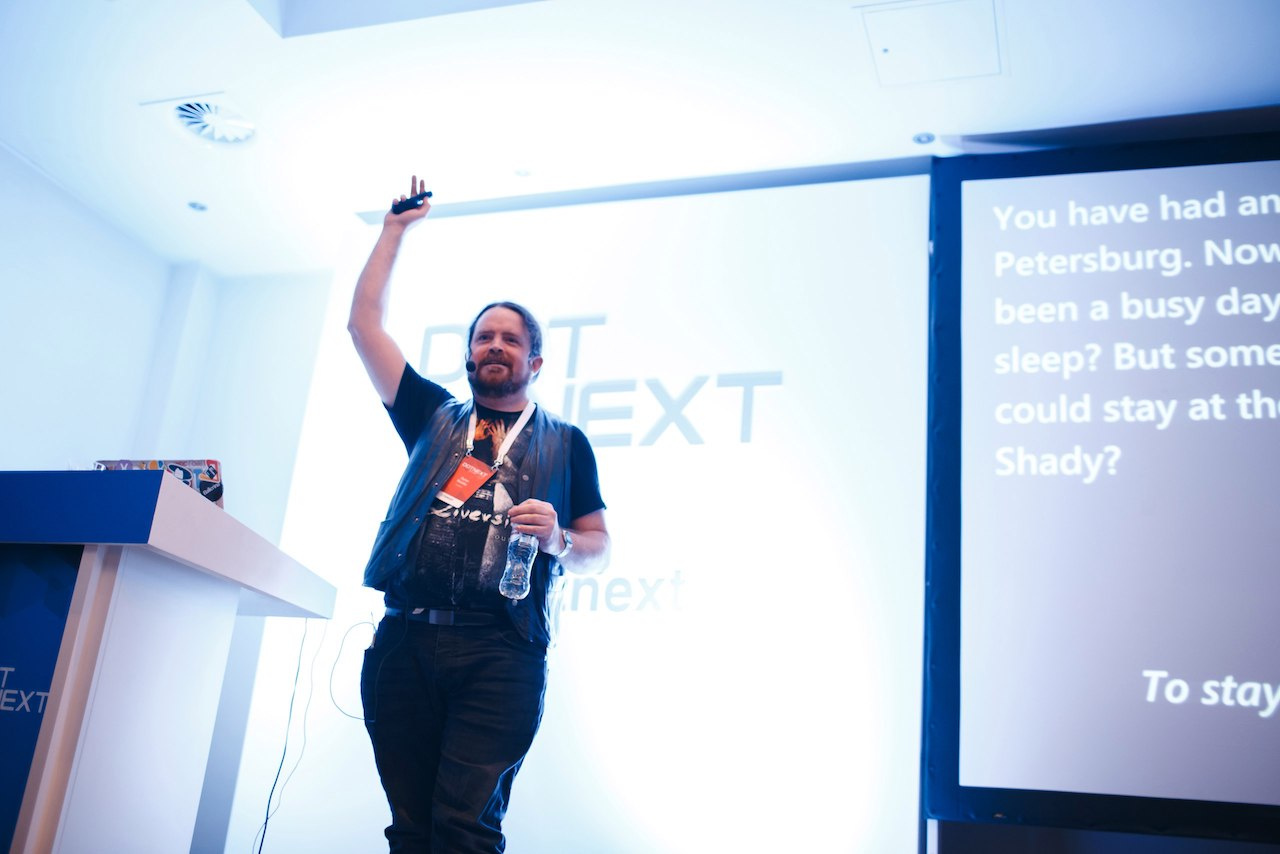
Dylan Beatty
Although this speaker did not speak with keynout, it is absolutely impossible not to mention him - at the conference he won many viewers. And some of them even before the report: having brought a guitar and other musical equipment with him, he performed an improvised rock concert right at a party after the first day of DotNext, perfectly performing songs from “Sultans of Swing” Dire Straits to “Seven Nation Army” The White Stripes.
In the report, Beatty talked about how REST ideas collide with the harsh reality and what happens in practice - and there, too, in his own way gave the show. There were examples of "replicas that the developer receives," and although Dylan does not speak Russian, for the DotNext viewers, he decided to Russify these lines. And I didn’t just translate it on the slides, but I wrote down the hints in Latin and diligently read them with the expression: “Vash idiotski API peregruzhaet nashu bazu dannikh!” The reaction of the hall should have been seen.
At the same time, one should not assume that the report of Dylan was a complete irresponsible fun. He, in particular, noted that REST ideas are good in the long term (at first it is necessary to make more efforts, but in the end it is worth it) - so it turns out that the responsibility to the “future self” turns out. Dylan doesn’t understand this: he has been working for Spotlight since 2000, so he regularly encounters his own old code, and knows how the desire to cut corners may come around in the future.
By his example, Beatty clearly showed that “fun” and “professionalism” are absolutely not in conflict with each other. And we tried to make the conference itself the same: fascinating and useful at the same time.
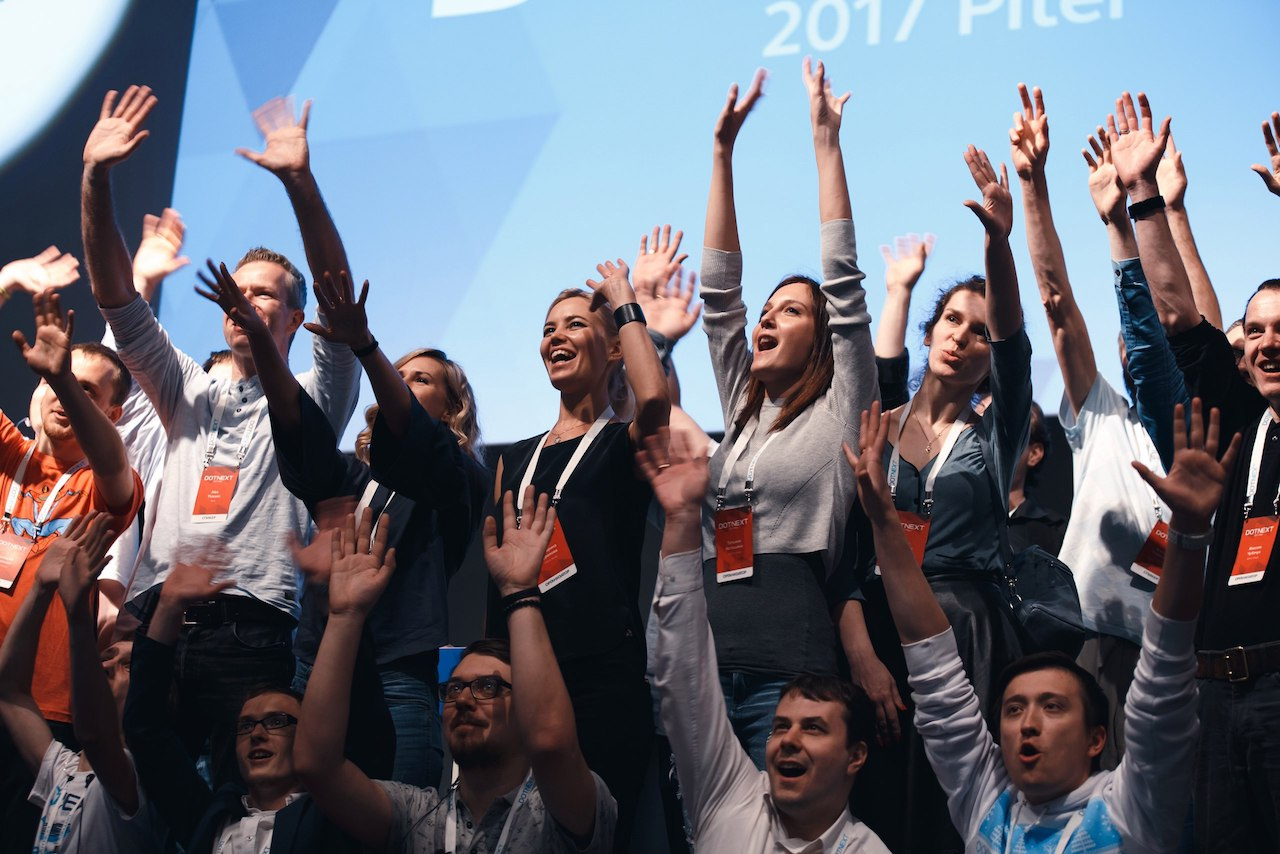
Source: https://habr.com/ru/post/329562/
All Articles